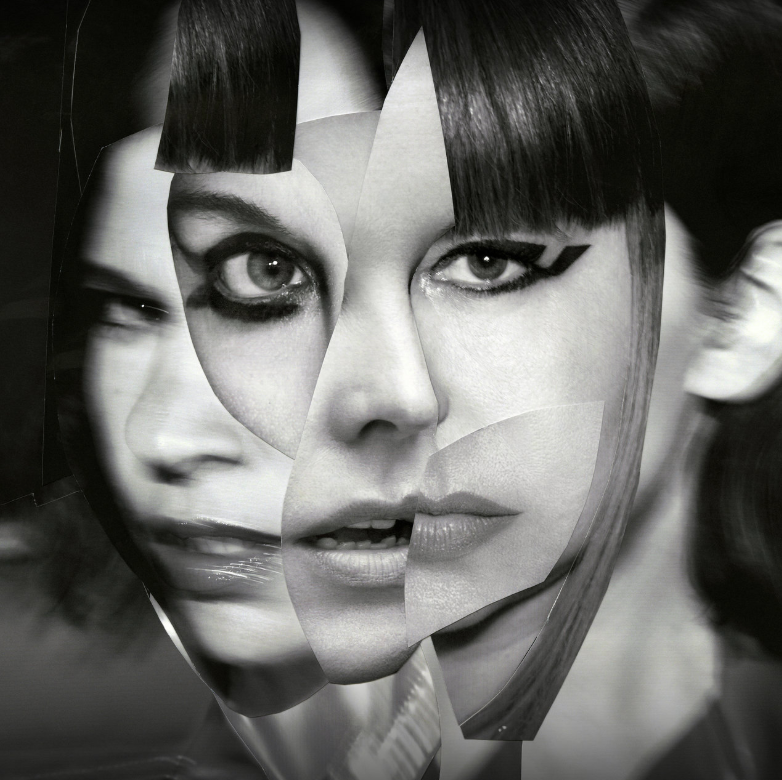Sleater-Kinney‘s ninth album opens not with a riff or a yelp, but with ominous clanking—a cacophonous signal that the trio of Carrie Brownstein, Corin Tucker, and Janet Weiss are using the quarter-century mark of their band as a jumping off point for trying new things. It ends with a stripped-down ballad where Tucker aches—about the world, about her place in it, about the bravery of other women who spoke up—over weeping guitar and deliberate piano, a close that’s at the sonic opposite of its opening moments, yet no less emotionally searing.
On The Center Won’t Hold, the trio, along with producer Annie Clark (St. Vincent), strike out in unexpected musical directions as the lyrics flail outward, searching for something vaguely human to grab onto in an increasingly mediated existence. Sometimes, they find it: “LOVE” is a synthed-out update on the words-and-guitars of the band’s early records, appropriate for a wink-filled recounting of their origin story (“Call the doctor, dig me outta this mess”) that turns into a rallying cry for older women who refuse to recede into the background. (“There’s nothing more frightening and nothing more obscene / Than a well-worn body demanding to be seen,” is probably the album’s most tattoo-worthy line). The slow-dance-turned-rancid of “Can I Go On,” meanwhile, finds camaraderie via shared disdain for the power naps and arm’s-length wisecracking that define modern life.
Elsewhere, this connection seems to be just out of reach. “Restless” calls back to the spindly guitar rock that ruled college radio during the band’s earliest days while turning over the knottier parts of desire; “Reach Out” is a 23rd-century vision of power-pop, Tucker’s wishing for sustained kinship breaking free from the electronic burbles and processed vocal harmonies.
That The Center Won’t Hold wound up being so divisive for Sleater-Kinney—Weiss announced her immediate departure from the band in June, just as its press cycle was gearing up—is somewhat unsurprising given the album’s more rigid rhythms, which give songs like the lurching title track and “RUINS” an alternate-dimension feel. (One exception is the hip-shaking “Bad Dance,” which could have been plucked from a basement-show mash-up of Cabaret and Pippin, its reveling-in-naughtiness lyrics updating Sally Bowles’ declaration that life is a cabaret by way of the Leading Player’s gleeful battleground pas de deux, and its music channeling Hedwig‘s glammed-up sass.)
But the controversy also seems ironic given that so much of the album is about the desperate search for later-in-life connections, whether they’re with the C-SPAN screen showing Christine Blasey Ford’s testimony (which Tucker chronicles on “Broken,” the white-knuckle finale) or with longtime friends who are the chief reason for putting up with modern life. The latter is a common theme on the album that peaks with “The Future is Here,” a mournful modernization of minor-key AOR that interrogates the social media age’s deprecation of “friend” as a catch-all descriptor.
Regardless, one thing is for sure about getting older: Bonds that seem lifelong can slack and rupture, whether because of earth-shattering events or minuscule shifts that amass into an altered outlook. In a cultural moment where deconstruction—through both brute force and thoughtful experimentation—is the modus operandi for people on both sides of the aisle, The Center Won’t Hold is a real-time examination of the fraying that takes its toll on peoples’ insides and outer shells during times both good and bad. Agitations about screen-borne life and unpleasant urges bounce off grander existential horrors; there’s no digging out of them, this record bellows, but thrashing around and attempting to find others to share the burdens will at least stave off malaise.





